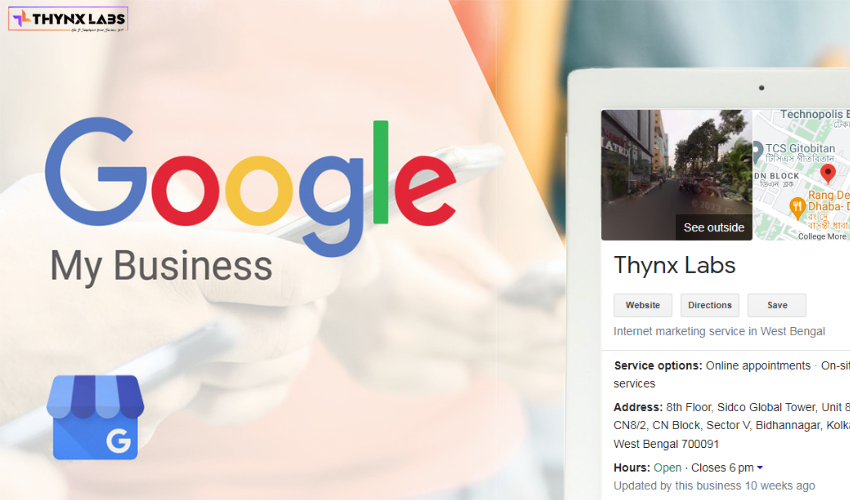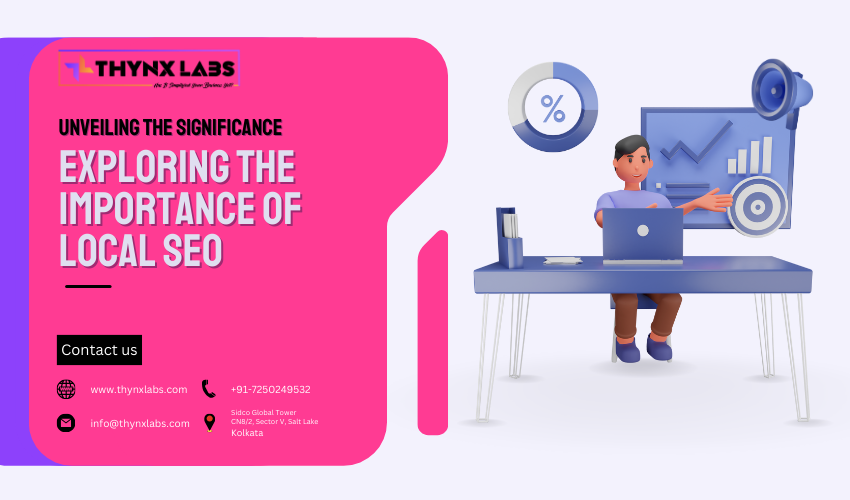Why SEO is Important For Every Business?
Search engine optimization (SEO) is the practice of optimizing your website and its content to rank higher in search engine results pages (SERPs) for relevant queries. SEO has become an essential part of any digital marketing strategy, and for good reason: it can have a significant impact on the success of a business. In this article, we'll explore why SEO is important for every business and how it can benefit your company.
1. Increase Website Traffic
The primary benefit of SEO is that it can help increase the amount of organic (non-paid) traffic your website receives. By optimizing your website and its content for relevant keywords, you can improve your chances of appearing higher in the SERPs for those queries. This means that more people are likely to click through to your website, increasing your overall traffic.
More traffic means more potential customers, which can translate into more sales or leads for your business. Additionally, as your website gains more visibility in the SERPs, you'll also gain more brand recognition and authority in your industry.
2. Improve User Experience
SEO isn't just about optimizing for search engines – it's also about improving the user experience on your website. Google and other search engines prioritize websites that are user-friendly and provide a good experience for their users.
By focusing on SEO best practices, you'll be improving your website's usability, making it easier for visitors to navigate and find the information they're looking for. This can lead to increased engagement, longer time on site, and lower bounce rates, all of which are positive signals to search engines that your website is high-quality and relevant.
3. Build Credibility and Trust
Appearing at the top of the SERPs for relevant queries can also help build credibility and trust with your audience. When people search for a product or service and find your website at the top of the results, they're more likely to see you as a trustworthy and authoritative source in your industry.
In contrast, if your website is buried on the second or third page of the results, people may assume that you're not as reputable as your competitors who appear higher in the SERPs. By investing in SEO, you're signaling to both search engines and potential customers that you're a credible and trustworthy business.
4. Increase ROI
Compared to other forms of digital marketing, such as paid advertising or social media marketing, SEO can offer a higher return on investment (ROI) over the long term. While it may take some time to see the results of your SEO efforts, once you start ranking higher in the SERPs, you can continue to receive traffic and leads without additional ongoing investment.
Additionally, because SEO targets people who are actively searching for your products or services, it can lead to higher-quality leads and conversions. This means that even if your overall traffic volume is lower than other marketing channels, your conversions and ROI can still be higher.
5. Stay Ahead of the Competition
As more and more businesses invest in digital marketing, the competition for online visibility and traffic is becoming increasingly fierce. SEO can help you stay ahead of the competition by improving your website's visibility in the SERPs and driving more organic traffic.
By optimizing your website for relevant keywords and providing high-quality content, you can establish yourself as a leader in your industry and attract more customers than your competitors who aren't investing in SEO. This can give you a significant advantage and help you stay ahead of the curve.
6. Adapt to Changing Search Behaviors
Finally, SEO is important for every business because it allows you to adapt to changing search behaviors and preferences. As search engines continue to evolve and improve, the way people search for information is also changing.
By staying up to date with the latest SEO best practices, you can ensure that your website is optimized for the latest search trends and preferences. This can help you
quickly adapt to new search algorithms and updates, which can have a significant impact on your website's visibility and traffic.
For example, Google's algorithm updates can impact how your website ranks in the SERPs. If your website isn't optimized for these updates, you may see a decrease in your rankings and traffic. By staying up to date with SEO best practices and adapting to these changes, you can continue to maintain and improve your website's performance in search results.
In addition, SEO also allows you to adapt to changing consumer behavior. As more and more people use mobile devices to search for information, it's become increasingly important to ensure that your website is mobile-friendly and optimized for mobile search.
By investing in SEO, you can ensure that your website is optimized for all types of devices and search queries, helping you reach and engage with your audience regardless of how they search for information.
Overall, SEO is an essential component of any digital marketing strategy. By investing in SEO, you can increase your website's visibility in the search results, attract more organic traffic, build credibility and trust with your audience, and ultimately drive more leads and sales for your business. Whether you're a small local business or a large multinational corporation, SEO can help you achieve your marketing goals and stay ahead of the competition in today's digital landscape.
FAQ’s
Q: What is SEO?
A: SEO stands for Search Engine Optimization. It's the practice of optimizing your website and its content to rank higher in search engine results pages (SERPs) for relevant queries.
Q: Why is SEO important for every business?
A: SEO is important for every business because it can increase website traffic, improve user experience, build credibility and trust, increase ROI, stay ahead of the competition, and adapt to changing search behaviors.
Q: How does SEO improve website traffic?
A: By optimizing your website and its content for relevant keywords, you can improve your chances of appearing higher in the SERPs for those queries. This means that more people are likely to click through to your website, increasing your overall traffic.
Q: How does SEO improve user experience?
A: SEO isn't just about optimizing for search engines – it's also about improving the user experience on your website. By focusing on SEO best practices, you'll be improving your website's usability, making it easier for visitors to navigate and find the information they're looking for. This can lead to increased engagement, longer time on site, and lower bounce rates, all of which are positive signals to search engines that your website is high-quality and relevant.
Q: How does SEO build credibility and trust?
A: Appearing at the top of the SERPs for relevant queries can help build credibility and trust with your audience. When people search for a product or service and find your website at the top of the results, they're more likely to see you as a trustworthy and authoritative source in your industry.
Q: How does SEO increase ROI?
A: Compared to other forms of digital marketing, such as paid advertising or social media marketing, SEO can offer a higher return on investment (ROI) over the long term. While it may take some time to see the results of your SEO efforts, once you start ranking higher in the SERPs, you can continue to receive traffic and leads without additional ongoing investment.
Q: How does SEO help stay ahead of the competition?
A: SEO can help you stay ahead of the competition by improving your website's visibility in the SERPs and driving more organic traffic. By optimizing your website for relevant keywords and providing high-quality content, you can establish yourself as a leader in your industry and attract more customers than your competitors who aren't investing in SEO.
Q: How does SEO adapt to changing search behaviors?
A: SEO allows you to adapt to changing search behaviors and preferences by staying up to date with the latest SEO best practices. This can help you quickly adapt to new search algorithms and updates, which can have a significant impact on your website's visibility and traffic. Additionally, SEO also allows you to adapt to changing consumer behavior, such as the shift towards mobile search.
Q: How long does it take to see results from SEO?
A: The time it takes to see results from SEO can vary depending on a number of factors, such as the competitiveness of your industry, the quality of your website and content, and the level of investment in your SEO efforts. In general, it can take several months to start seeing significant results from SEO, but it's important to remember that SEO is a long-term investment that can provide lasting benefits for your business.


